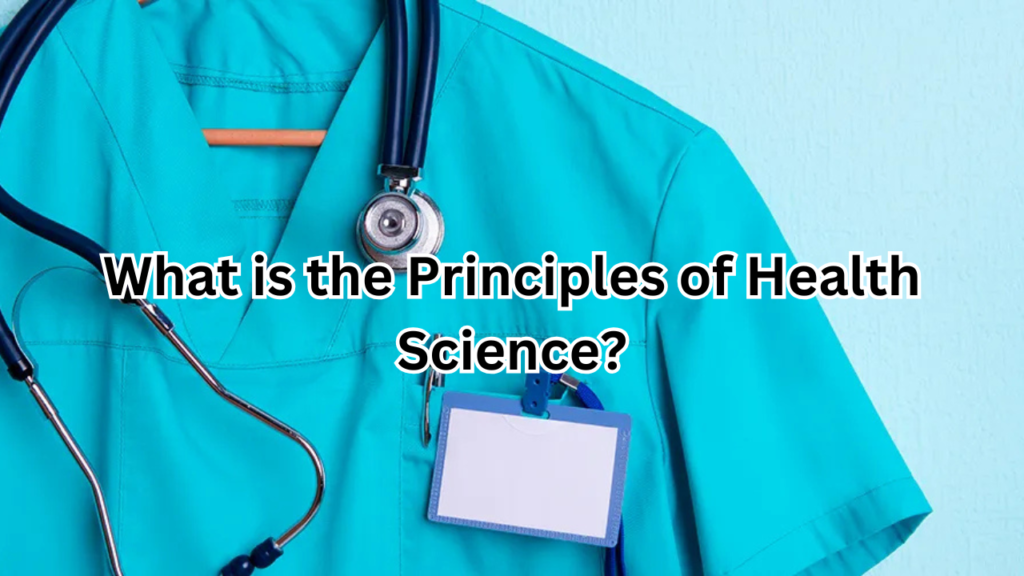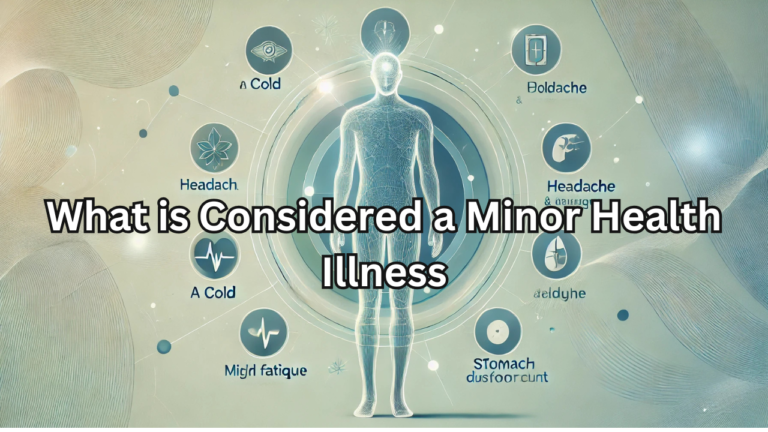

Table of Contents
Introduction
Health science plays a crucial role in the education system, providing students with the knowledge and skills needed to understand and contribute to the healthcare field. As the demand for healthcare professionals continues to rise, the importance of health science in education cannot be overstated. It equips individuals with a solid foundation in both the scientific principles and practical applications necessary for a career in healthcare.
So, what is the Principles of Health Science? This foundational course introduces students to the diverse and rapidly evolving world of healthcare. It covers a wide range of topics, from basic human biology to the ethical considerations of patient care. By exploring these principles, students gain insight into the many career opportunities available in healthcare, while also learning the fundamental concepts that will guide their future roles as healthcare professionals. Whether aspiring to become a doctor, nurse, or public health expert, understanding the principles of health science is the first step toward a successful career in the healthcare industry.
What is the Principles of Health Science?
The Principles of Health Science is a foundational course designed to introduce students to the broad field of healthcare and provide them with an understanding of the essential concepts and skills needed to pursue a career in health-related professions. The course covers a wide range of topics, from human anatomy and physiology to healthcare ethics, medical terminology, and the basics of patient care. It serves as a stepping stone for students who are interested in various healthcare careers, offering them a comprehensive overview of the healthcare system.
In high school, what is Principles of Health Science in high school? It is often one of the first opportunities for students to explore the healthcare field. The course provides a clear understanding of the roles and responsibilities within the healthcare industry, and it often includes hands-on learning experiences such as clinical practices or internships. This exposure helps students decide if they want to pursue more specialized healthcare studies in college or technical programs.
The Principles of Health Science curriculum is carefully structured to equip students with both theoretical knowledge and practical skills. The curriculum includes topics such as basic medical terminology, health systems, ethics, career exploration in healthcare, and introductory clinical skills. By offering a comprehensive and well-rounded education, the course prepares students for further studies in health science or entry-level positions in the healthcare field.
Key Components of the Principles of Health Science Course
The Principles of Health Science course serves as a comprehensive introduction to the world of healthcare, laying the groundwork for students interested in pursuing a career in this field. It provides a well-rounded foundation by covering a variety of essential topics that are crucial for understanding the healthcare system and patient care.
One of the core elements of the Principles of Health Science curriculum is an introduction to the basic concepts of health science, which include an understanding of human biology, anatomy, and physiology. This foundational knowledge is essential for students to grasp how the human body functions and how different healthcare practices relate to patient health.
The course also places a strong emphasis on Principles of Health Science medical terminology. Students learn the language of medicine, which is vital for effective communication in healthcare settings. Understanding medical terminology helps students interpret medical records, communicate with healthcare professionals, and understand the language used in various medical specialties.
Ethics and patient care are other key topics in the course. Students explore the ethical dilemmas that healthcare professionals may face, such as issues related to patient confidentiality, informed consent, and medical decision-making. The course also covers the basics of patient care, teaching students how to approach patient interactions with compassion, professionalism, and respect.
Finally, students are introduced to healthcare systems, including the structure and function of hospitals, clinics, and other medical facilities. This section of the course helps students understand how different parts of the healthcare system work together to provide comprehensive care to patients. By studying these core components, students gain a solid foundation that prepares them for more advanced healthcare education or entry-level positions in the field.
Principles of Health Science in High School
Taking the Principles of Health Science course in high school offers numerous benefits for students interested in pursuing a career in healthcare. What is Principles of Health Science in high school? It is an introductory course designed to provide students with a foundational understanding of healthcare concepts, setting the stage for more specialized studies in the future. By enrolling in this course, high school students gain early exposure to the healthcare field, which can help them make informed decisions about their career paths.
One of the primary benefits of taking the Principles of Health Science course in high school is that it helps students develop a clear understanding of the diverse opportunities available within the healthcare industry. Whether students are interested in becoming doctors, nurses, medical technicians, or healthcare administrators, this course offers insights into the various roles and responsibilities within the sector. By learning about medical terminology, patient care, ethics, and healthcare systems, students gain the essential knowledge needed to pursue a specialized healthcare career.
Moreover, this course prepares students for future careers in healthcare by teaching them critical skills that are highly valued in the industry. Students gain a basic understanding of medical practices and terminology, along with an introduction to the ethics and responsibilities involved in patient care. The Principles of Health Science course also fosters important skills such as communication, teamwork, and problem-solving, all of which are crucial in any healthcare environment. By taking this course, high school students are better equipped to pursue more advanced studies in health science or healthcare-related fields, giving them a head start in their future educational and professional endeavors.
Principles of Health Science Textbooks and Resources
Textbooks and PDFs are essential resources in learning, especially when it comes to understanding the complex topics within health science. Having access to comprehensive and well-organized materials helps students grasp the core concepts more effectively. The Principles of Health Science course relies heavily on these resources to provide students with a structured approach to their studies, ensuring that they can easily reference important information and build a solid foundation in healthcare principles.
One valuable resource is the Principles of Health Science textbook PDF, which offers students a digital format of the textbook that can be accessed anytime and anywhere. This flexibility makes it easier for students to study at their own pace, revisit concepts as needed, and even search for specific terms or topics. The Principles of Health Science pdf is particularly useful for those who prefer online reading or need to access study materials on-the-go. These digital textbooks often include interactive features such as hyperlinks, multimedia content, and additional learning aids to enhance the educational experience.
In addition to textbooks, there are various other resources that complement the Principles of Health Science curriculum. Online platforms, video tutorials, and interactive modules are excellent supplements that help students visualize and understand complex health science concepts. Websites, educational apps, and even healthcare-related virtual simulations can deepen students’ knowledge of anatomy, patient care, medical ethics, and more. Together, these resources create a dynamic learning environment that supports both traditional textbook-based study and digital, interactive learning, providing students with the tools they need to succeed in the field of health science.
Learning Medical Terminology in Principles of Health Science
One of the fundamental aspects of the Principles of Health Science course is learning medical terminology, which serves as the language of healthcare. Understanding Principles of health science medical terminology is crucial for anyone pursuing a career in the healthcare field, as it enables clear and effective communication among professionals and ensures accurate documentation of patient information.
Medical terminology is used to describe the human body, its functions, diseases, treatments, and procedures. By learning these terms, students in the Principles of Health Science course become familiar with the language that is essential for understanding medical records, communicating with patients, and collaborating with healthcare teams. For example, medical terms often describe the location of injuries or the nature of illnesses, helping professionals accurately diagnose and treat patients.
The importance of Principles of health science medical terminology extends beyond the classroom. For students, mastering this terminology can significantly enhance their ability to excel in future healthcare-related studies and careers. Whether working as a nurse, medical assistant, or healthcare administrator, professionals will rely on their understanding of medical terms to navigate the complex healthcare environment. Learning medical terminology early in the Principles of Health Science course ensures that students are well-prepared for more advanced courses and the fast-paced, detail-oriented world of healthcare.
What Can You Expect from a Principles of Health Science Class?
In a Principles of Health Science class, students can expect a dynamic and engaging learning experience that blends traditional lessons with hands-on activities. Daily activities in the course are designed to provide a comprehensive understanding of healthcare concepts, with a focus on both theoretical knowledge and practical skills. Students can expect to participate in classroom discussions, read textbooks, and complete assignments that reinforce their understanding of topics like medical terminology, patient care, and healthcare systems.
Assignments in the Principles of Health Science class often include essays, case studies, and projects that require students to apply what they’ve learned in real-world scenarios. These assignments are designed to encourage critical thinking and help students develop problem-solving skills that are essential for a career in healthcare. Additionally, students will likely engage in various interactive methods such as quizzes, group activities, and hands-on exercises that make learning more engaging and enjoyable.
One popular resource that students may use in the class is Principles of Health Science Quizlet. This online tool helps students study and reinforce their knowledge of medical terminology and other key concepts. Quizlet allows students to create flashcards and take practice quizzes, which can be a fun and effective way to prepare for tests and exams. Interactive methods like these help students retain important information and provide immediate feedback on their understanding of the material.
Overall, the Principles of Health Science class offers a well-rounded educational experience, combining classroom instruction with interactive, hands-on learning opportunities that prepare students for further studies and careers in healthcare.
Is Principles of Health Science Hard?
Is Principles of Health Science hard? The difficulty of the course largely depends on the student’s background and their familiarity with subjects like biology, anatomy, and medical terminology. For some students, the concepts covered in Principles of Health Science might seem challenging, especially if they are new to the healthcare field or have limited experience with complex scientific topics. However, for others with a strong interest in healthcare, the course can be an exciting and manageable introduction to the world of medicine.
While the Principles of Health Science course does require an understanding of scientific concepts, medical terminology, and healthcare systems, it is designed to provide a foundational knowledge that students can build upon. The course covers a broad range of topics, but it does so in a way that introduces concepts step by step. As long as students stay organized and engaged, the material is often very achievable.
To succeed in Principles of Health Science, students can follow a few key strategies:
- Stay Consistent: Regularly review the material, especially medical terminology and key concepts, to ensure you understand them. Small, consistent study sessions are more effective than cramming before exams.
- Utilize Resources: Take advantage of study aids like Principles of Health Science Quizlet and online practice quizzes to reinforce your learning. These tools can help you become more comfortable with medical terminology and healthcare concepts.
- Participate Actively in Class: Engage in hands-on activities, group discussions, and assignments to strengthen your understanding. The more you interact with the material, the more you will retain.
- Ask for Help: If you’re struggling with a particular concept, don’t hesitate to ask your teacher for clarification or seek additional resources. Teachers often offer extra support to help students succeed.
Principles of Health Science Curriculum
The Principles of Health Science curriculum is designed to provide students with a well-rounded introduction to the healthcare field. It covers essential concepts such as medical terminology, human anatomy, healthcare ethics, patient care, and the structure of healthcare systems. This curriculum serves as a foundation for students interested in pursuing various healthcare careers, whether they plan to become doctors, nurses, medical technicians, or healthcare administrators.
One of the key learning objectives of the Principles of Health Science curriculum is to ensure that students understand basic medical terminology and how to apply it in real-world healthcare settings. Additionally, students are taught the fundamentals of human anatomy and physiology, providing them with the knowledge needed to understand how the body functions and how healthcare interventions impact patients. The curriculum also emphasizes the importance of ethical considerations in healthcare, including patient confidentiality, informed consent, and professional behavior.
Another critical objective of the Principles of Health Science curriculum is to equip students with the skills necessary for career readiness in healthcare. By learning about healthcare systems, students gain insight into how different healthcare providers and institutions work together to deliver patient care. The curriculum also includes lessons on healthcare professions and the different roles and responsibilities within the healthcare field, helping students identify potential career paths. Hands-on activities, such as clinical practice and group projects, further enhance students’ preparedness for future studies or entry-level positions in the healthcare industry.
Ultimately, the Principles of Health Science curriculum is carefully structured to ensure that students not only gain essential knowledge but also develop the practical skills and critical thinking abilities needed to succeed in healthcare careers.
Principles of Health Science in Different States (Example: Texas Edition)
The Principles of Health Science course can vary across different states, but it generally shares a common goal: to provide students with foundational knowledge and skills for pursuing careers in healthcare. In Texas, the Principles of Health Science Texas Edition offers a tailored curriculum that aligns with state education standards and the needs of local healthcare industries.
The Principles of Health Science Texas Edition includes specific topics that reflect the healthcare landscape in the state, such as an overview of Texas-based healthcare systems, medical regulations, and healthcare laws unique to the region. Students in Texas gain insight into the state’s healthcare infrastructure, including the role of large hospital networks, public health programs, and rural healthcare services. This regional focus allows students to better understand the specific challenges and opportunities within Texas’s healthcare sector.
For those looking for resources to complement their studies, the Principles of Health Science Texas Edition PDF is available, offering a convenient and accessible way to review the curriculum. The PDF provides all the key content of the course, from medical terminology and anatomy to ethical considerations and patient care, in a format that can be easily accessed from any device. This resource supports students as they study at their own pace, whether they are reviewing for exams, completing assignments, or preparing for a career in healthcare.
Overall, the Principles of Health Science Texas Edition provides a comprehensive, state-specific educational experience that prepares students for future careers in healthcare, while offering valuable resources like the Principles of Health Science Texas Edition PDF to enhance learning and study.
Conclusion
Taking the Principles of Health Science course offers numerous benefits for students, particularly those interested in pursuing careers in healthcare. Through this course, students gain a strong foundation in key concepts like medical terminology, patient care, ethics, and healthcare systems. They also develop practical skills and critical thinking abilities that will help them succeed in further studies or entry-level positions in healthcare. By exploring What is Principles of Health Science, students learn not only about the medical field but also how it integrates with other areas of society, preparing them for a variety of roles in the healthcare sector.
For students considering a healthcare career, the Principles of Health Science course is a valuable stepping stone. It provides an early introduction to the industry, helping students make informed decisions about their future paths. Whether you’re looking to become a nurse, medical technician, or healthcare administrator, this course offers the knowledge and tools you need to succeed. If you’re passionate about healthcare and want to explore what this field has to offer, consider enrolling in a Principles of Health Science course and taking the first step toward a rewarding career in the healthcare industry.
FAQs
What does Principles of Health Science teach you?
Principles of Health Science teaches foundational knowledge and skills necessary for pursuing a career in healthcare. The course covers a wide range of topics, including medical terminology, patient care, human anatomy, healthcare systems, and ethics. It provides students with a solid understanding of how the healthcare industry operates and introduces them to key concepts that will be important in future healthcare studies and careers.
What is the definition of Principles of Health?
The Principles of Health refers to the core concepts and practices that form the foundation of healthcare. These principles encompass various aspects of medical science, ethics, patient care, and healthcare systems. It provides a broad overview of the healthcare field, helping students understand the fundamental roles and responsibilities involved in healthcare professions.
What subject is Principles of Health Science?
Principles of Health Science is a health education subject designed to introduce students to the healthcare field. It covers subjects like medical terminology, patient care practices, human anatomy, healthcare ethics, and healthcare systems. This course is typically offered to high school students as part of career readiness programs, providing them with a broad understanding of healthcare professions.
What do you do in health science class?
In a health science class, students engage in a combination of lectures, hands-on activities, and interactive learning. They study topics such as medical terminology, patient care, and healthcare systems, and often participate in group projects, case studies, and quizzes. The class may also include practical exercises, such as learning basic first aid skills, performing health assessments, or exploring healthcare-related technologies.
How do I study for Principles of Health Science?
To study effectively for Principles of Health Science, it’s essential to stay organized and review the material consistently. Focus on mastering medical terminology, as it forms the basis of much of the course content. Utilize resources like flashcards (e.g., Principles of Health Science Quizlet) to reinforce key terms. Participate actively in class, and make use of study aids, online resources, and group study sessions to strengthen your understanding of the topics covered.
What careers can you pursue after studying Principles of Health Science?
After completing the Principles of Health Science course, students are well-prepared to pursue a variety of careers in healthcare. Some potential career paths include nursing, medical assisting, physical therapy, healthcare administration, and medical research. The course provides the foundational knowledge needed to pursue further studies in specific healthcare fields or to enter entry-level positions in healthcare-related industries.
Are there any certifications available through the course?
While the Principles of Health Science course itself may not offer certifications, it often provides a pathway to certifications in various healthcare fields. Students who complete the course may be eligible to pursue certifications like Certified Nursing Assistant (CNA), Basic Life Support (BLS), or First Aid certifications. These certifications can enhance career prospects and provide additional qualifications for healthcare positions.






